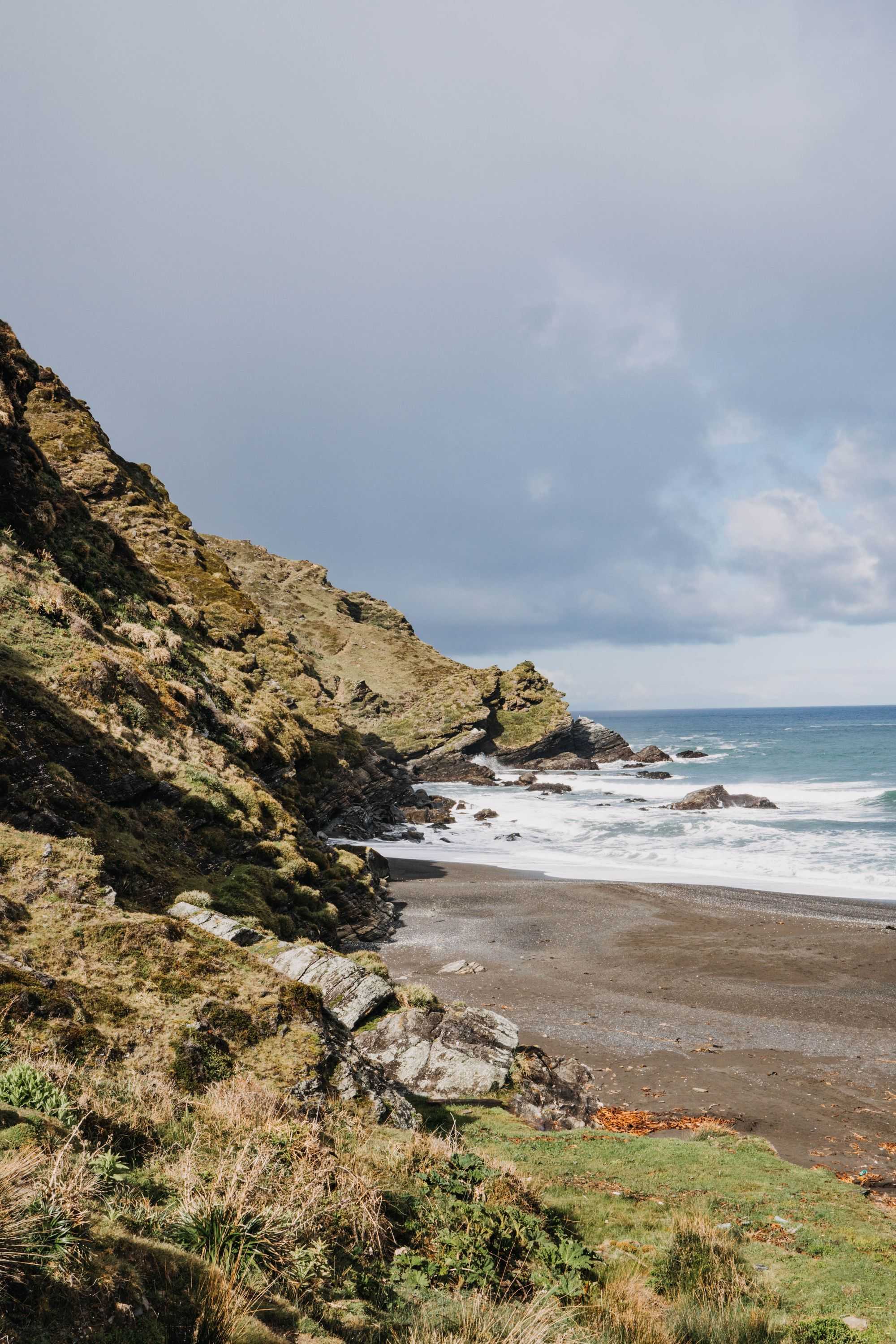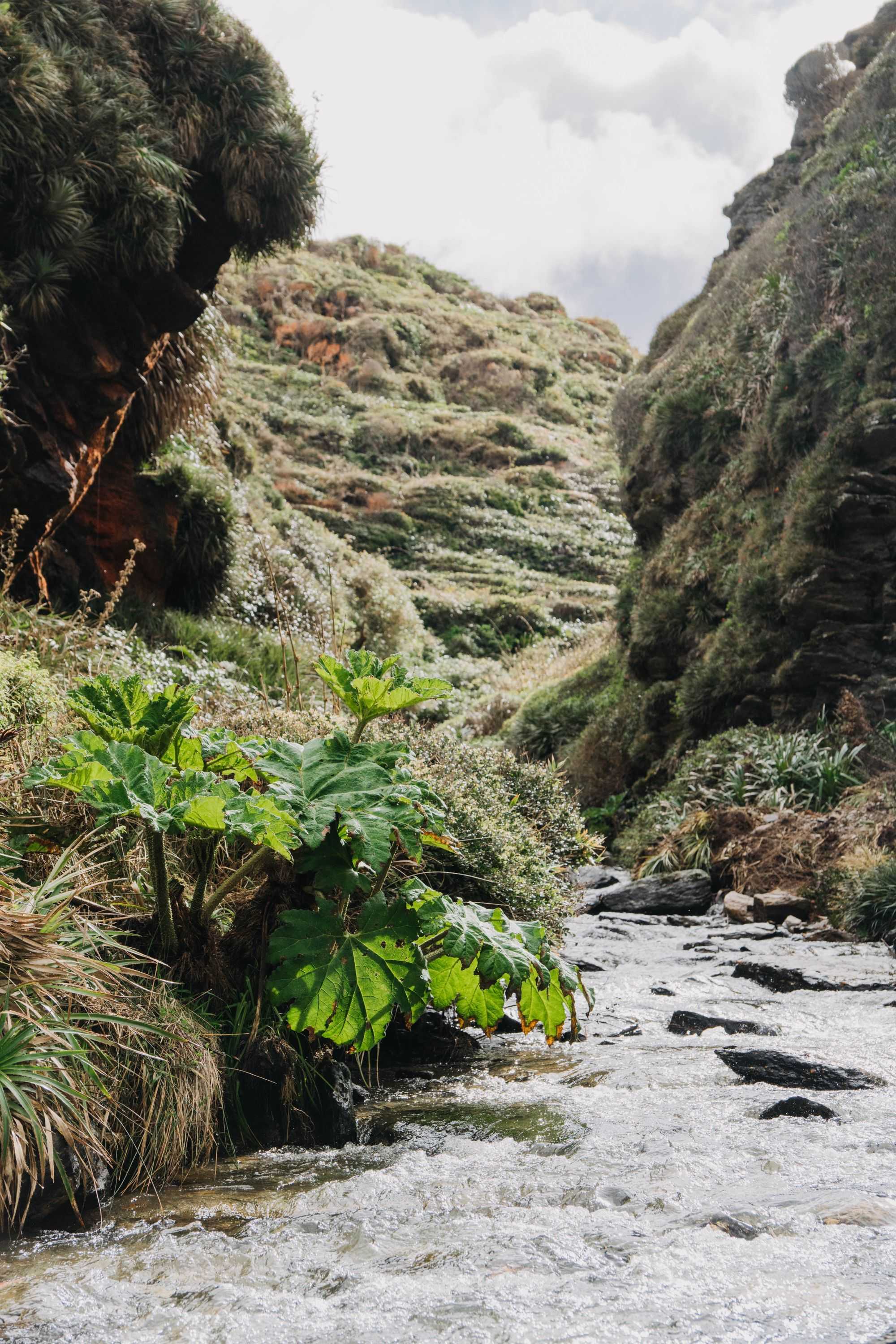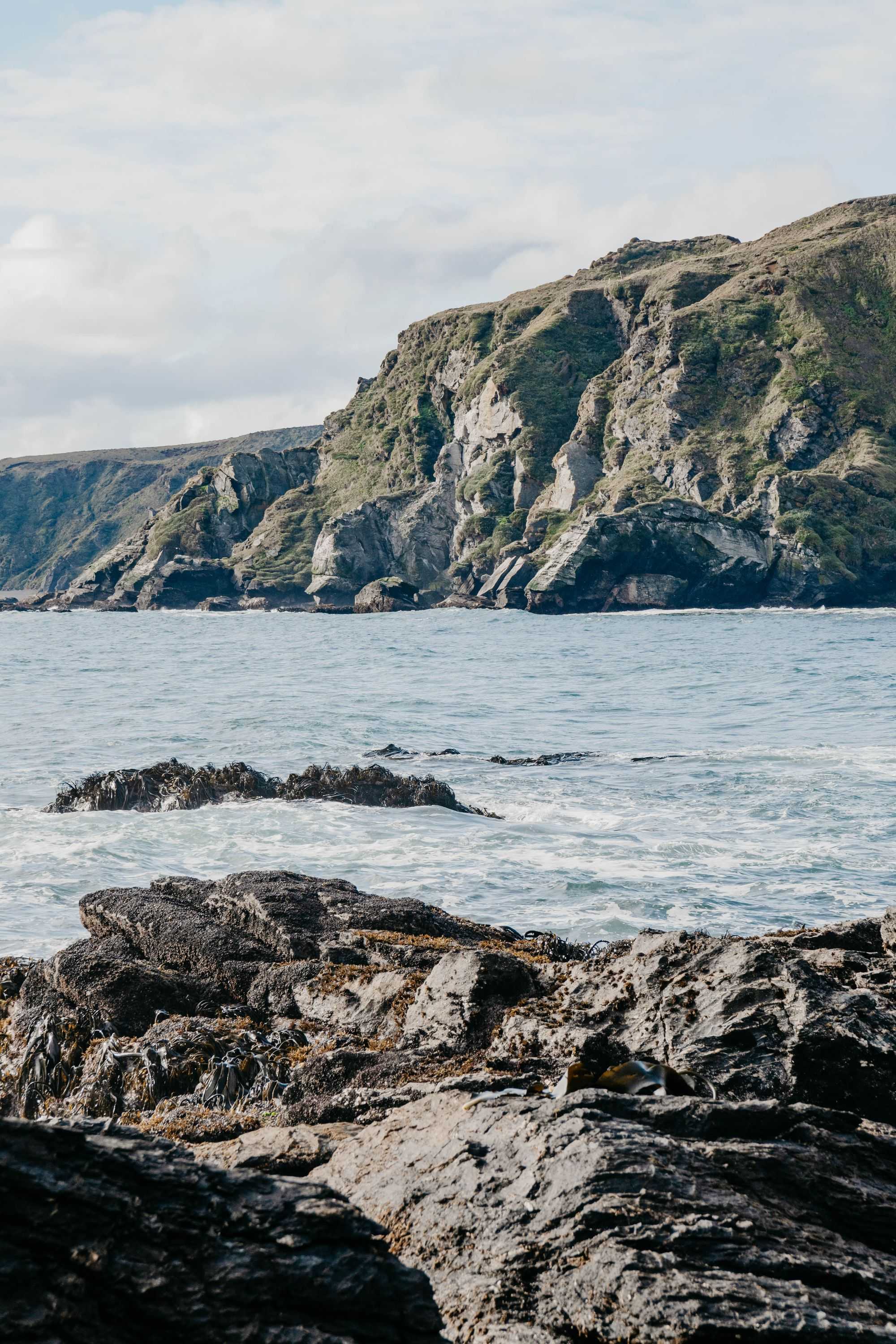Southwards, just not too quickly
Sunny, frosty, rainy - a bit of everything. Read this blog to find out how we beat the time until our volunteer assignment.
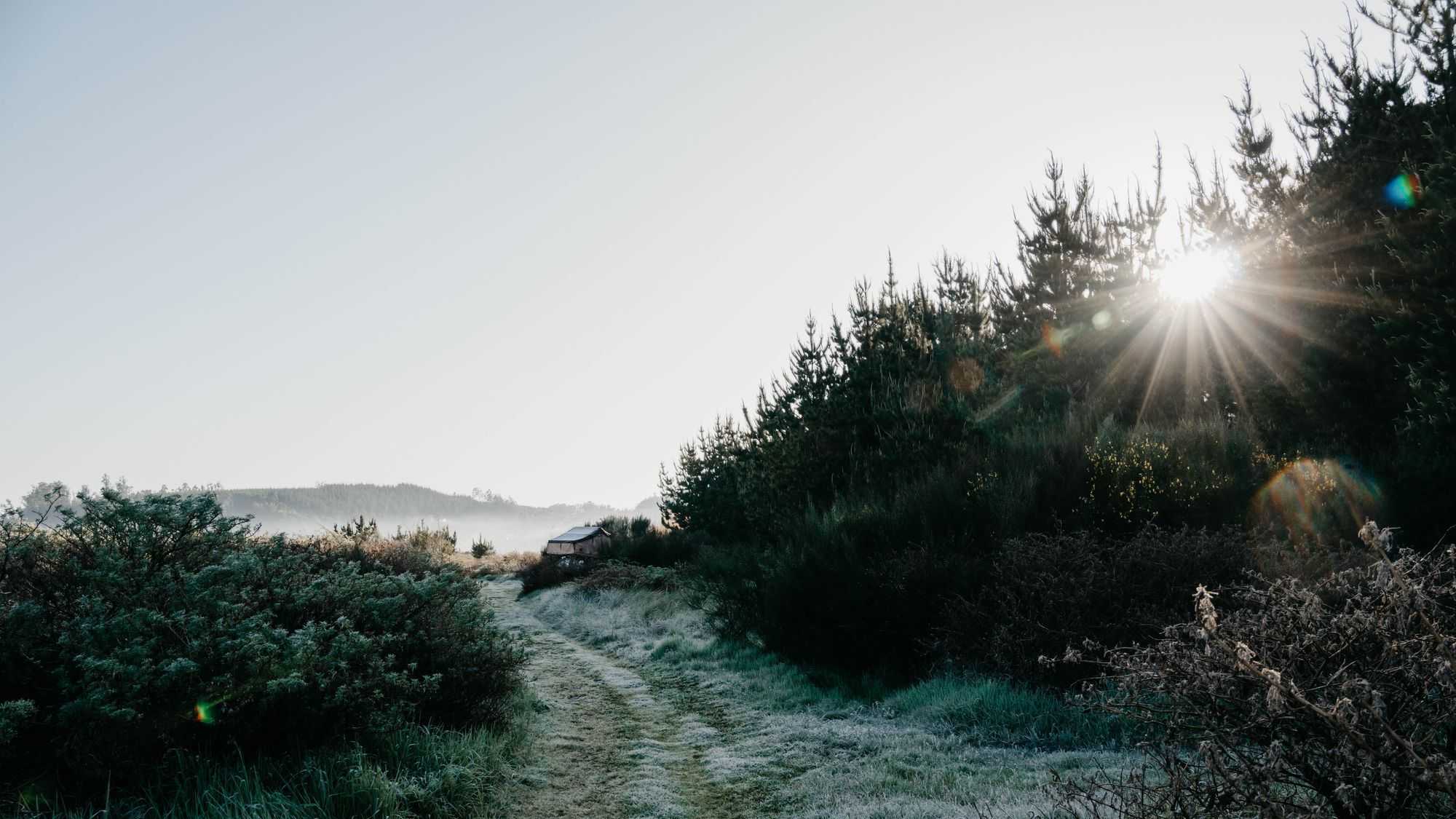
While autumn is setting in in Switzerland, we are eagerly awaiting spring. We travel directly from Santiago into the mountains. About 2 hours by car and we are in the middle of the Andes again. Our destination is the Cajón del Maipo. A much visited region, on the one hand as a weekend destination for the inhabitants of the capital, but also for many foreign tourists. Although we are travelling with our own vehicle, we arrive at the reservoir almost at the same hour as the guided tours, where everyone makes a photo stop. As is so often the case, we only have to walk a few extra metres to have the mountain world to ourselves again. The weather is perfect and the snow-covered peaks are reflected in the clear water.
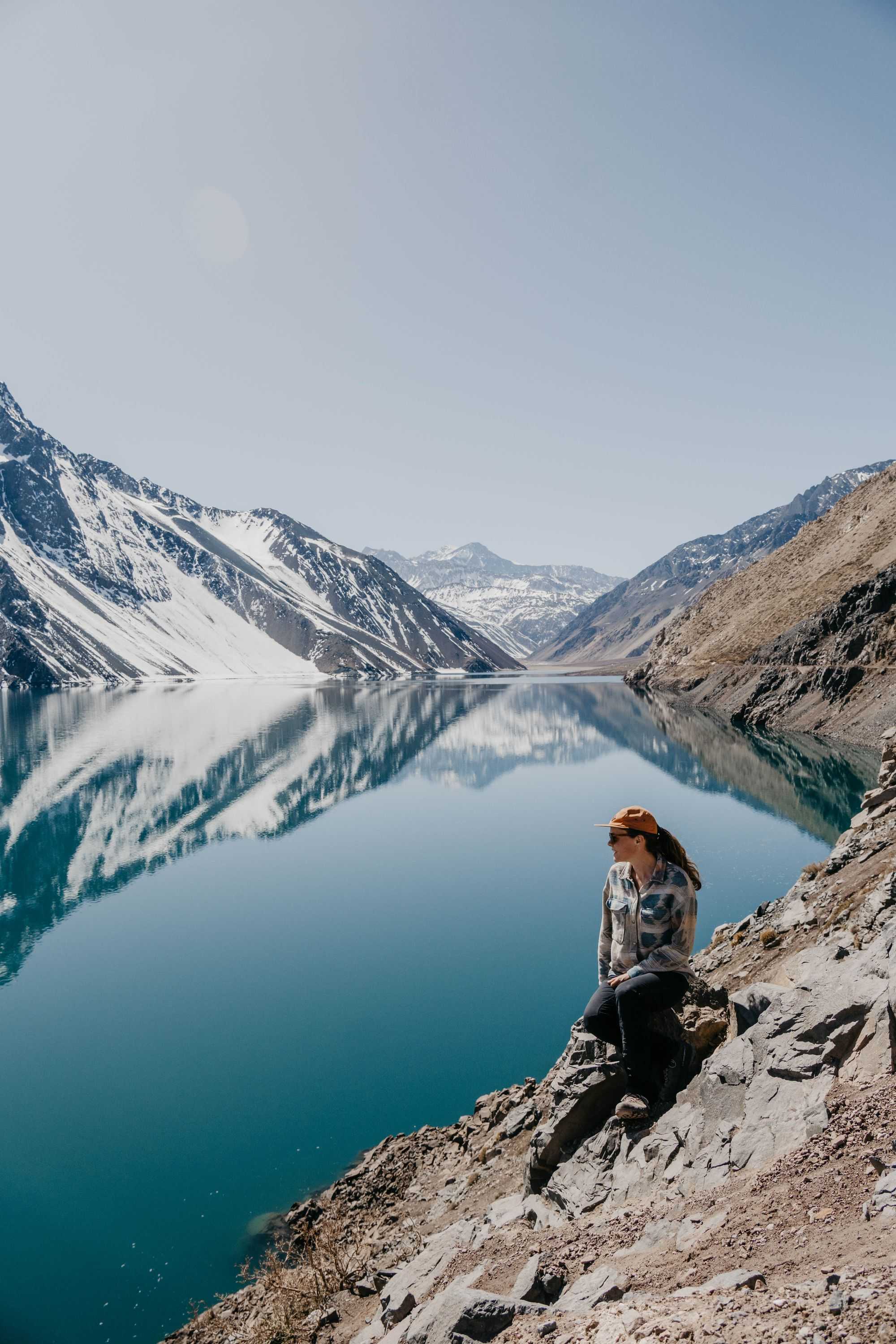
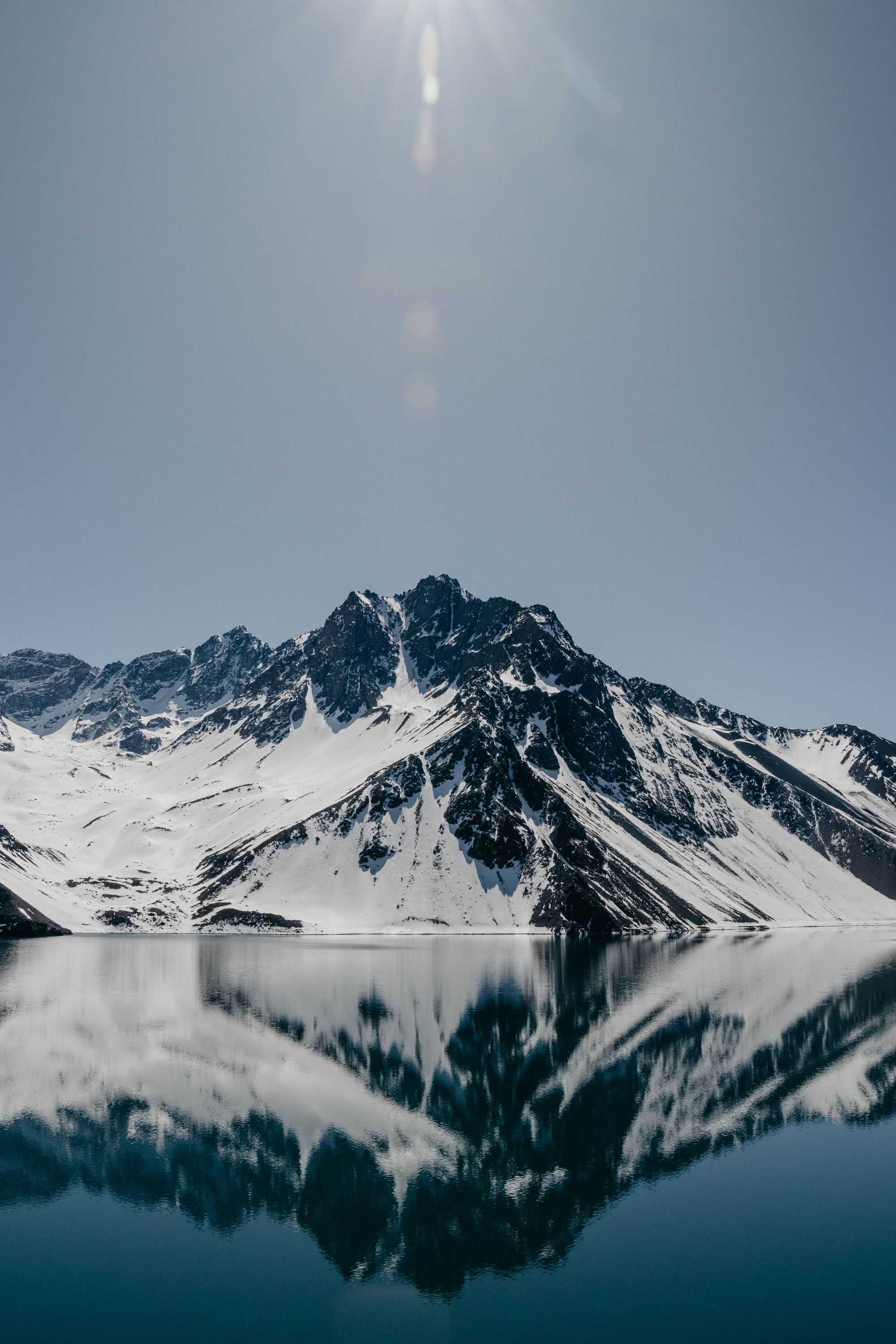
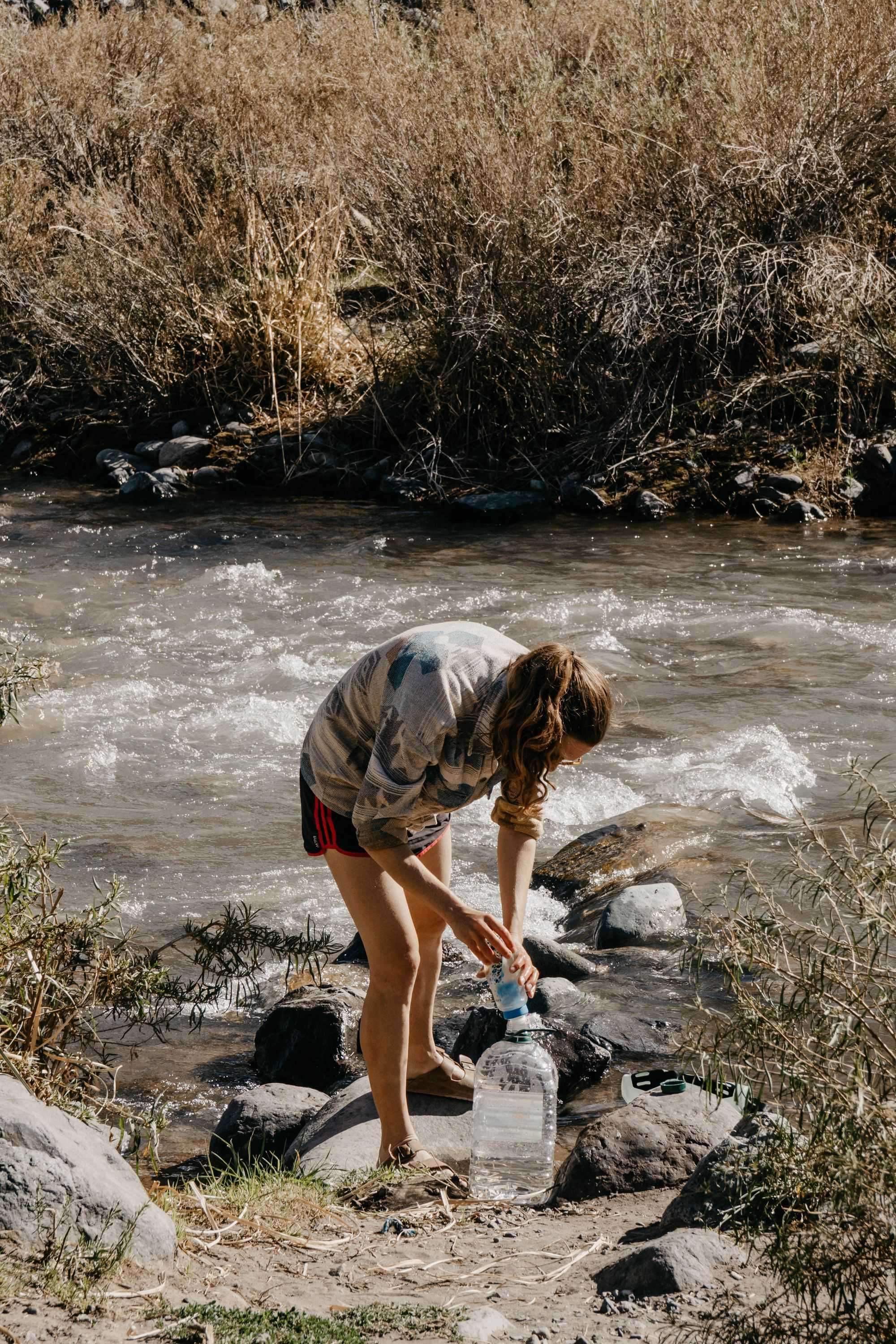
The next day also presents us with perfect weather conditions but rather modest, not to say really bad road conditions. Due to the strong volcanic activity, there are many hot springs all over Chile, 270 of them, spread over the whole length of the country. You might think that for an attraction where even guided tours lead to, the road would have to be reasonably intact, but this is not the case. We are happy about our "Javier", 4x4 drive and enough ground clearance, so that we reach the "Termas Valle de Colina" safe and sound, even if a bit shaken. Where condor and guanaco say good night to each other, several steaming pools lie on the slope and invite us to relax. Right next to it is a campsite (theoretically a relatively flat area with water supply and toilets, but none of this works), where we spend the night in spite of everything. The advantage is that we have 24-hour access to the springs, which we of course take advantage of. Early in the morning, the brisk wind wakes us up. After a long to and fro, we struggle out of the warm bed and pack up the roof tent in the icy cold, the gusts are too strong. And these gusts are the harbingers of the weather change. Strong winds, cold and later rain destroy our plan of an early morning swim and the planned hike.
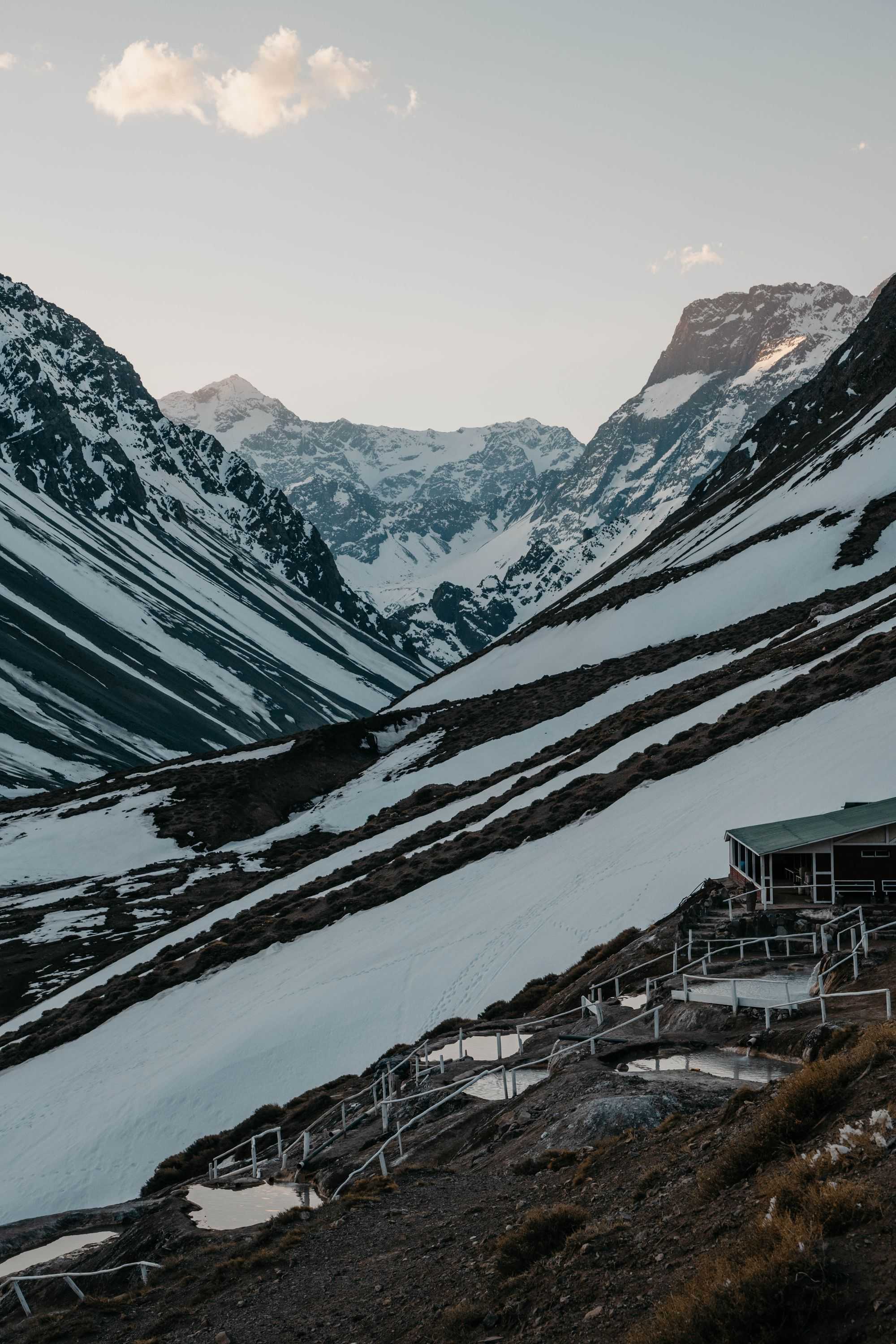
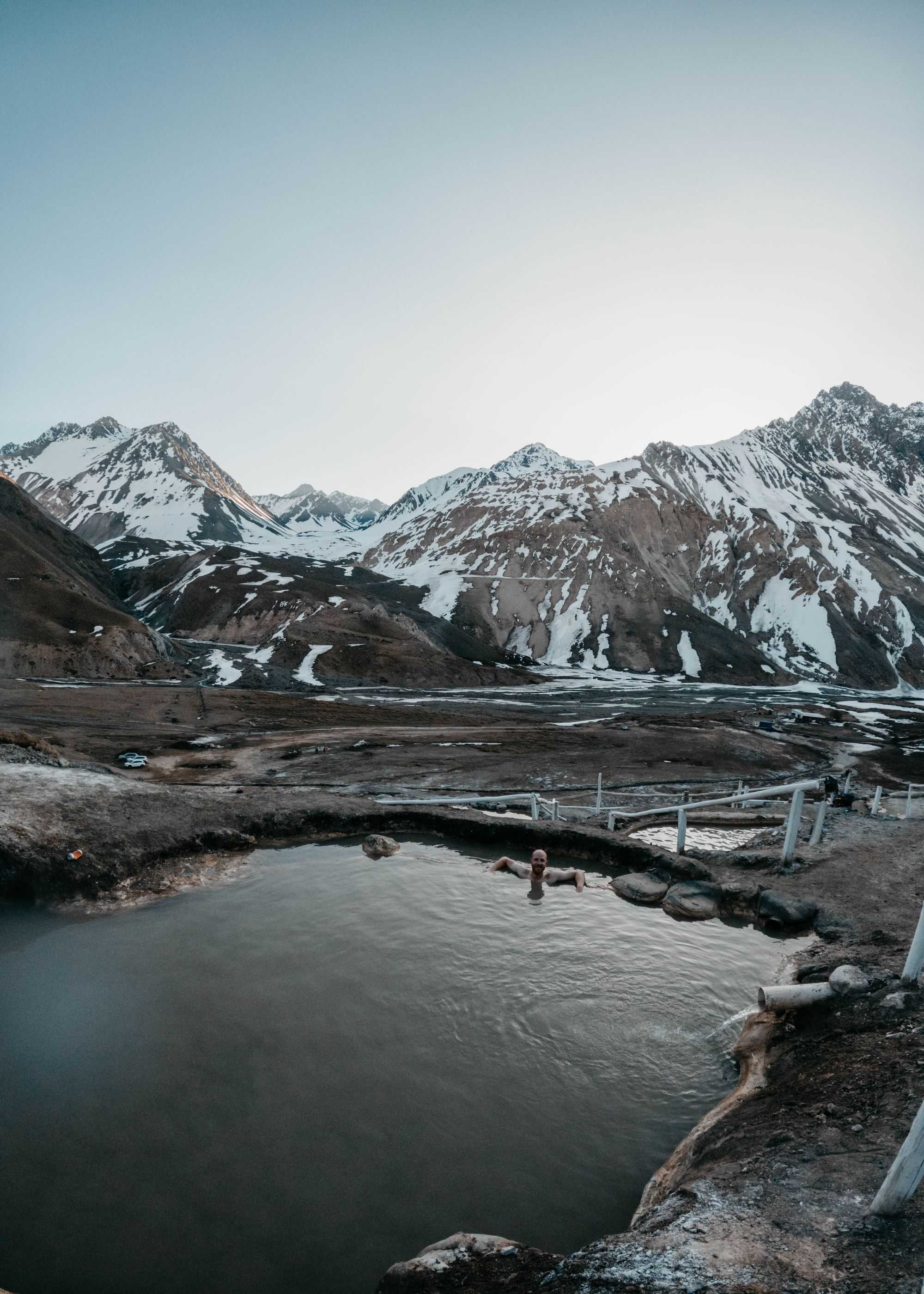
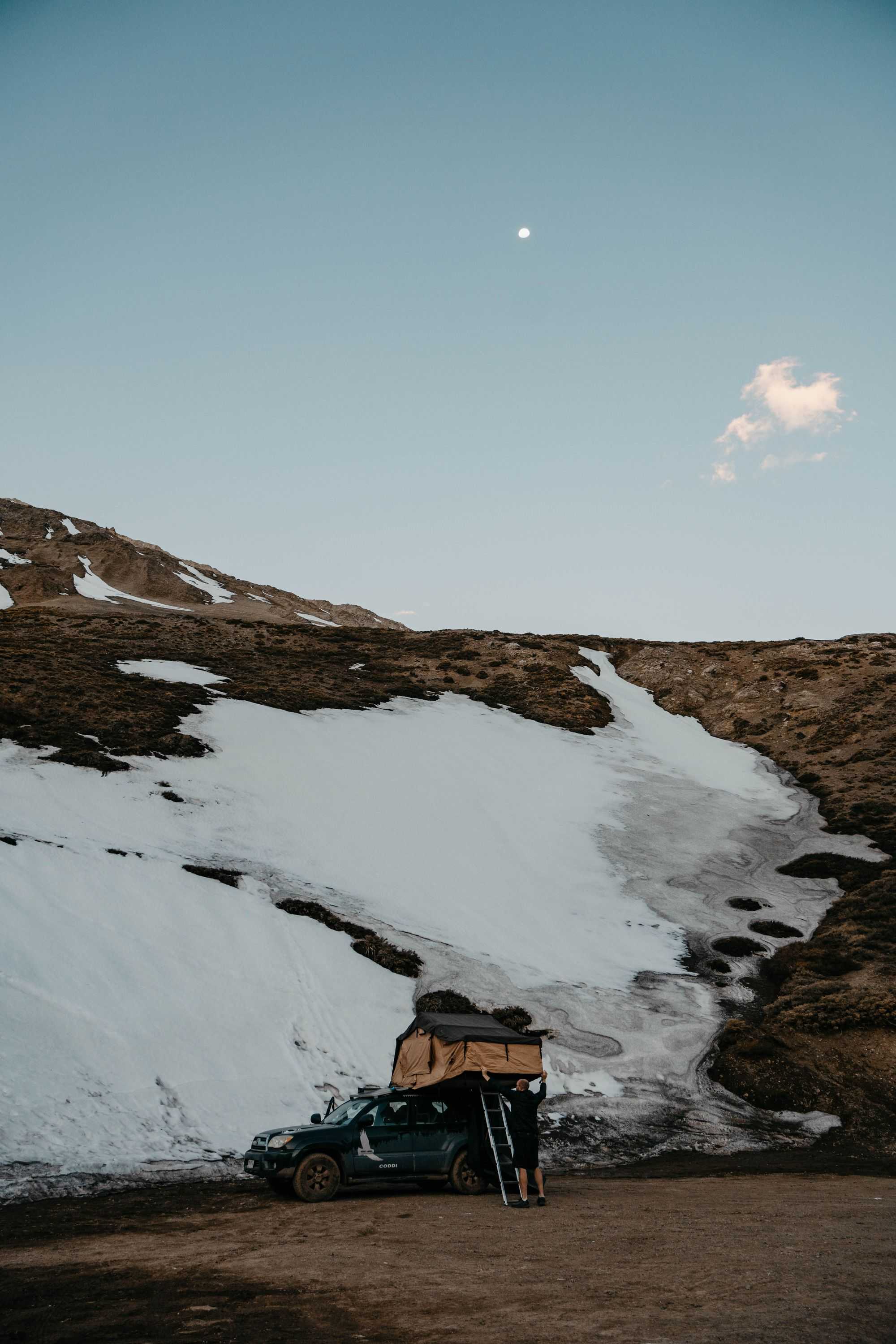
The gloomy days shape our mood. Somehow we are a bit aimless on the road, respectively the destinations we are heading for turn out to be moderately unspectacular. We are in an agricultural region where there are few natural corners to be found. We look for the spectacle in Pichilemu, a surfing capital where international competitions also take place. We travel there in the hope of seeing some impressive waves (and riders). Arriving at the surf spot we are disappointed. Only two surfers are in the water and during 15 minutes of watching them, they don't try to catch a single wave, what a disillusionment. This is definitely not what we had in mind and so we head straight south. A small highlight follows in the evening. While we spend the night on a free campsite, a woman gives us fresh, homemade ceviche. Ceviche is a typical dish consisting of raw fish and lemon. A real treat! So now we have to make the next crossing to get back to the mountain region. Our hopes rest on the national park "Siete tazas", where we hope for one or two beautiful hikes and a wild camping site that will allow us a few days of rest. The story is told faster than we would like. At the entrance to the park, we first have to buy a ticket online, because although there are two rangers on site (there is not much of a crowd), we cannot pay cash and there is no reception with our internet provider. The nice lady sends us to another entrance of a private park, but of course it is closed. So we return and ask if there is no possibility to buy a ticket anyway. Mercifully, the lady then makes us a hotspot so that we can still buy a ticket and visit the park. Kind of a hassle. The short way leads to the viewpoint of these so-called seven cups, a river that flows through seven water basins. Beautiful but seen after a short time and the further routes are also very average. Unfortunately, the more interesting routes are still closed due to the snow. So this excursion ends and we turn back towards the coast.
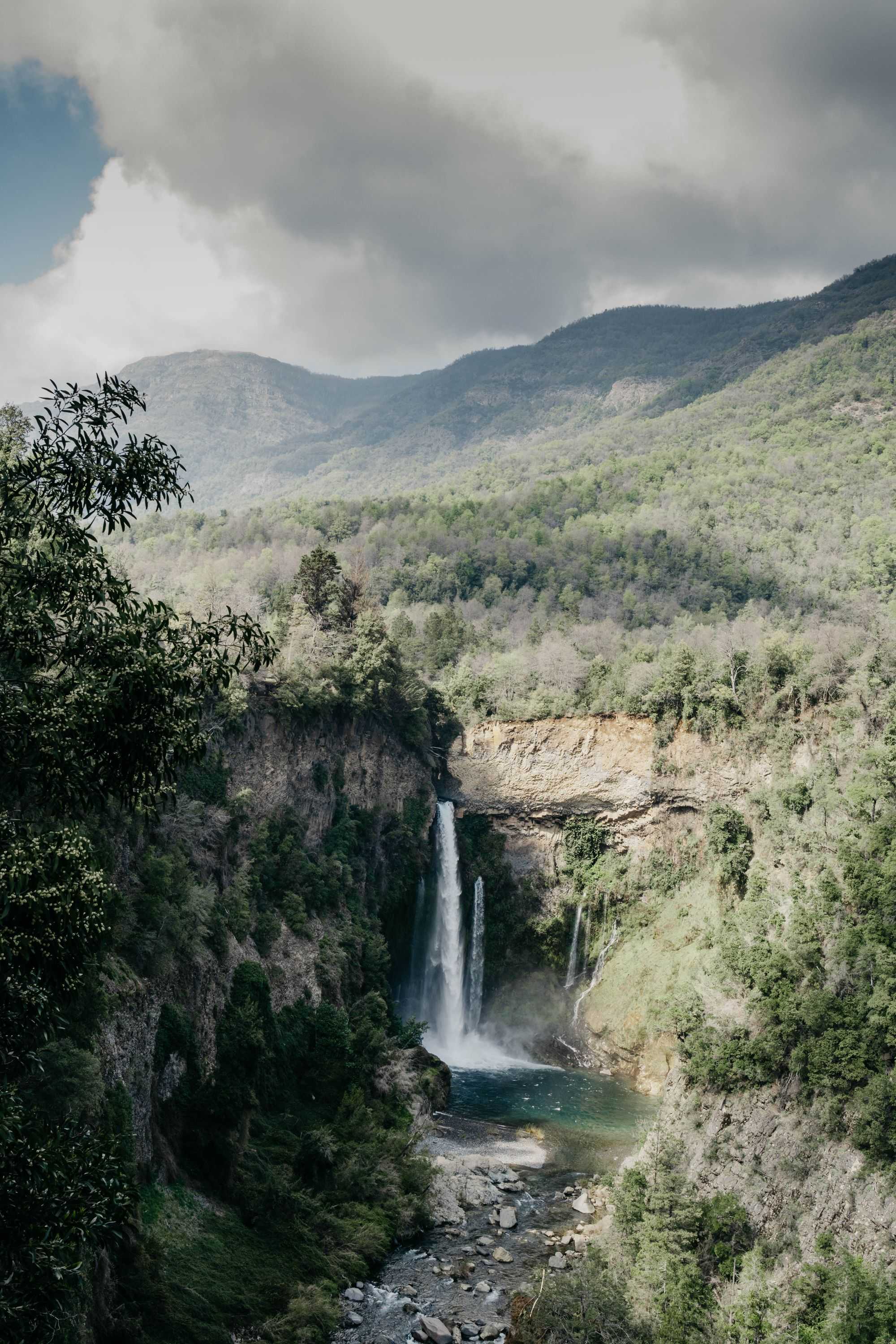
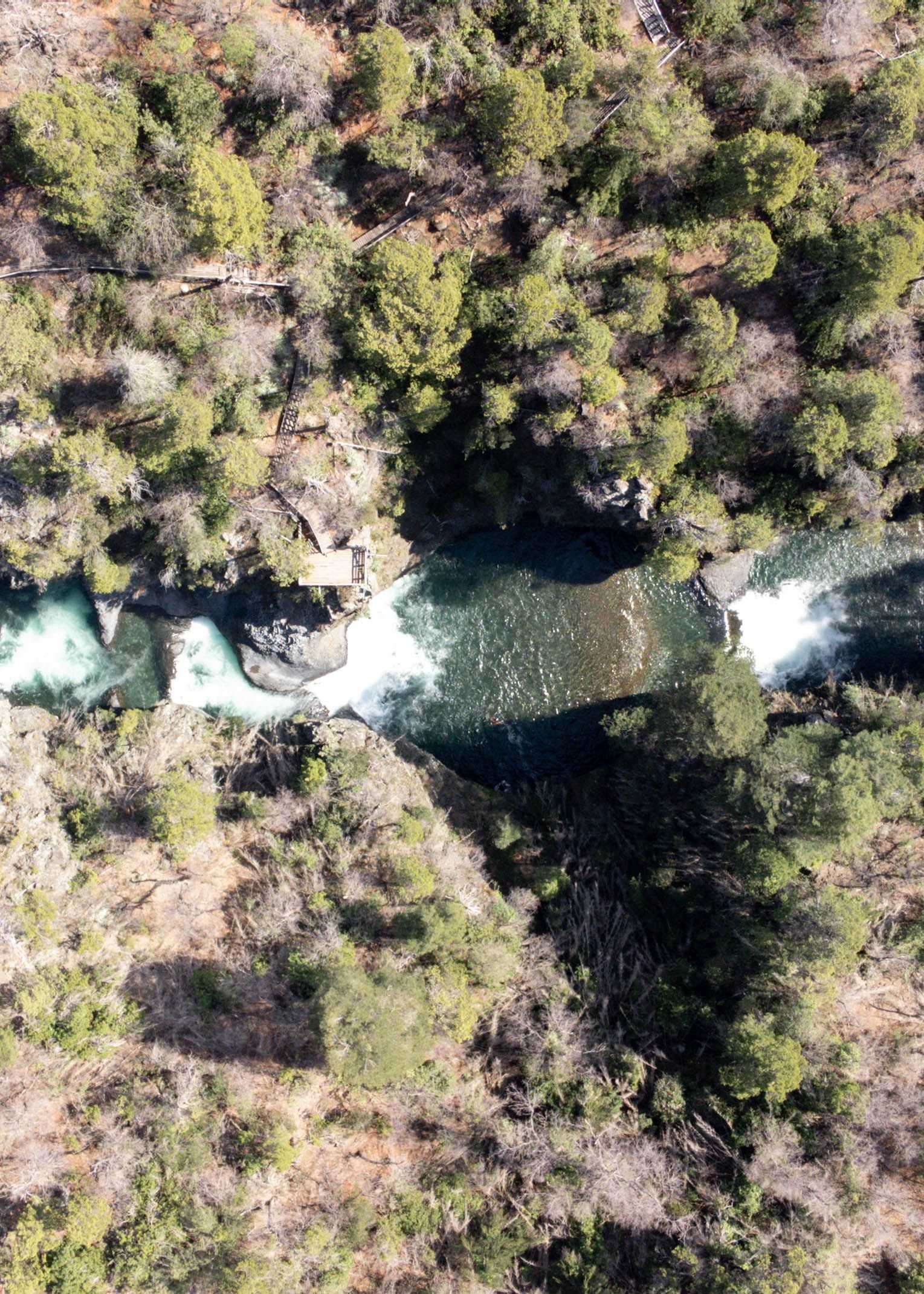
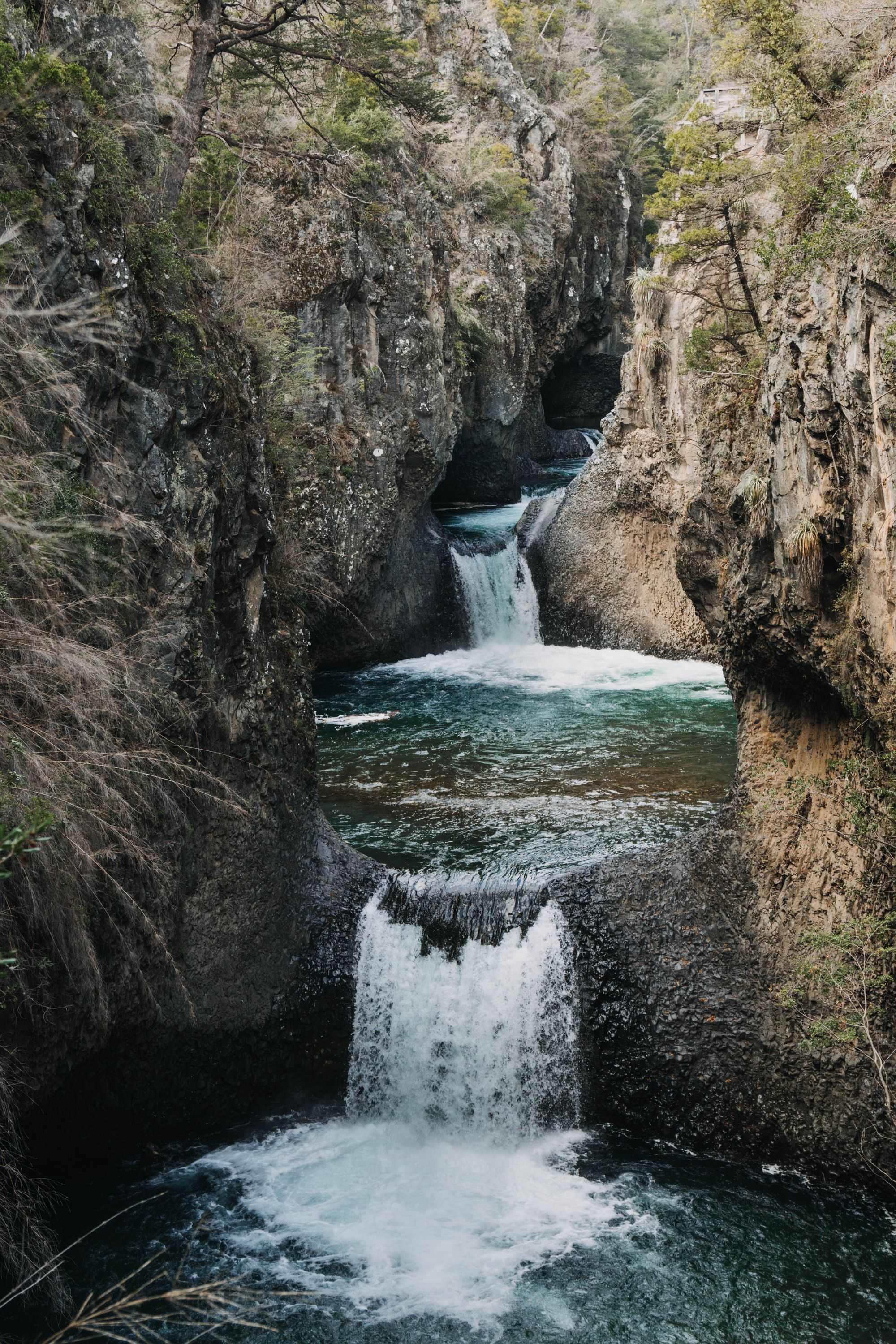
At a lake we finally find a place where we can linger once again. In the current region this is not always so easy, but all the driving and few things to admire make us tired of travelling. Why don't we just drive faster to the south, where a thousand attractions are waiting? Doesn't make much sense, because it's still deep winter there and besides, we have a fixed date in Pucón at the end of September, where we will work in a hostel for a month.
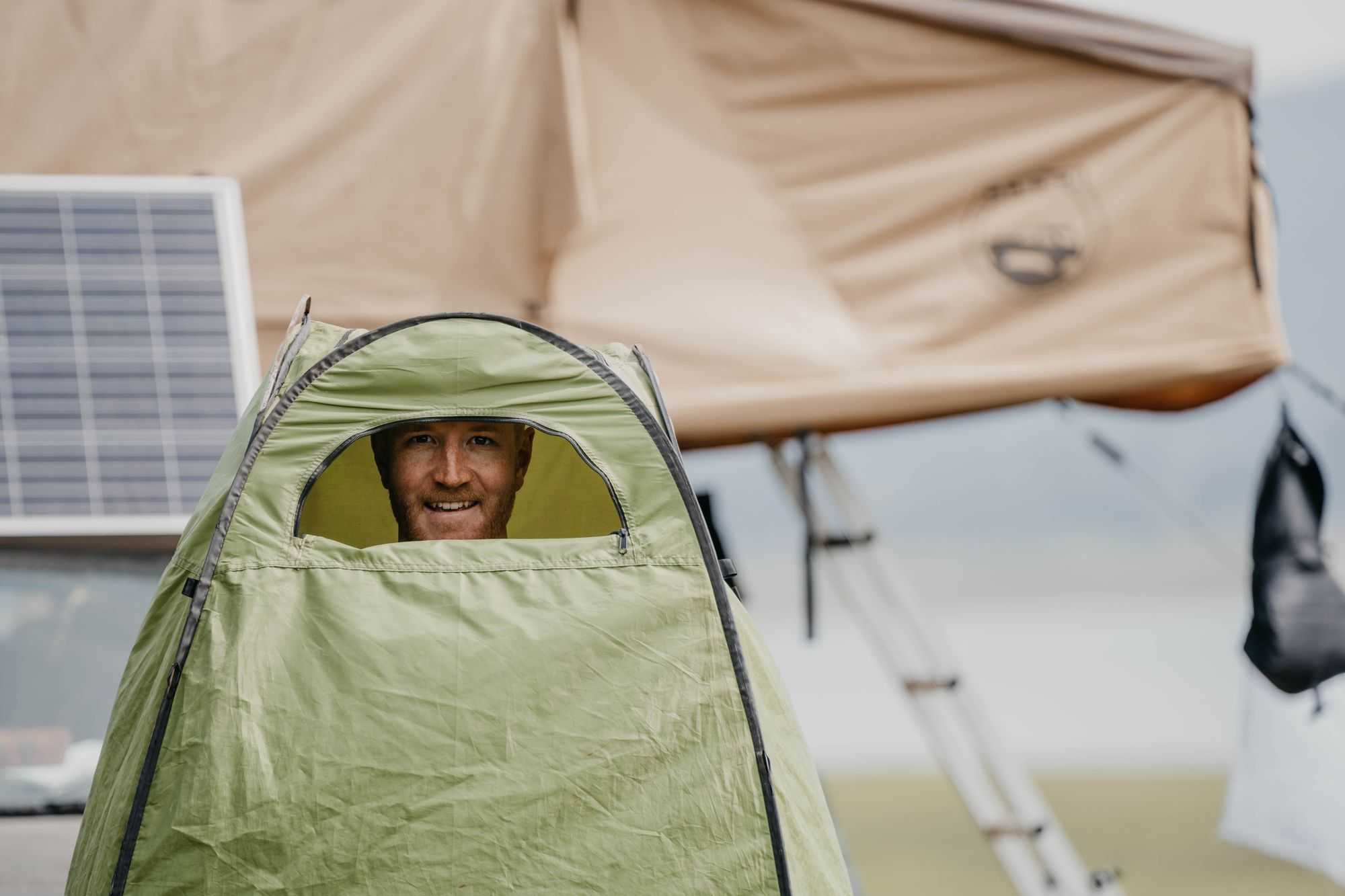
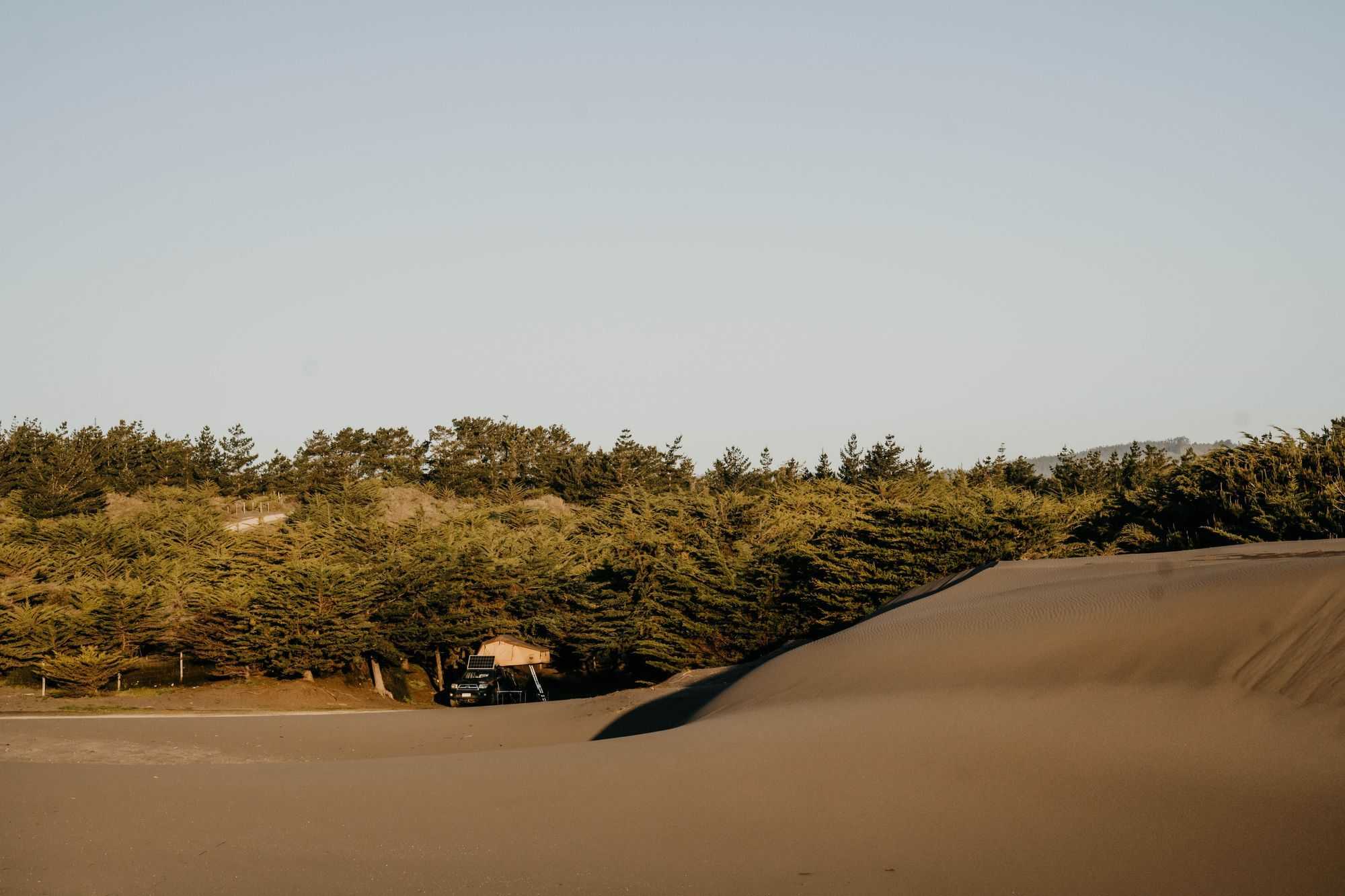
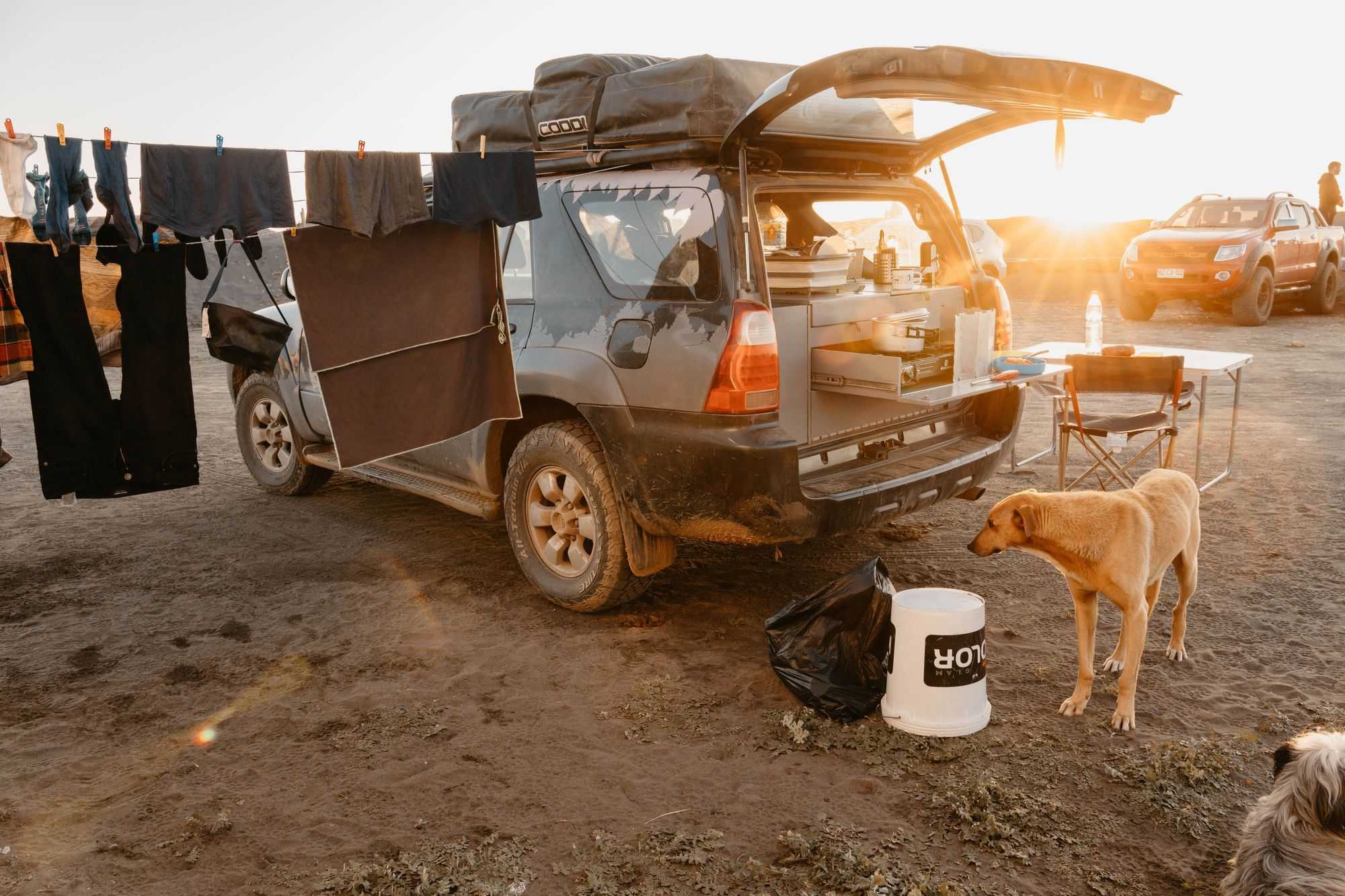
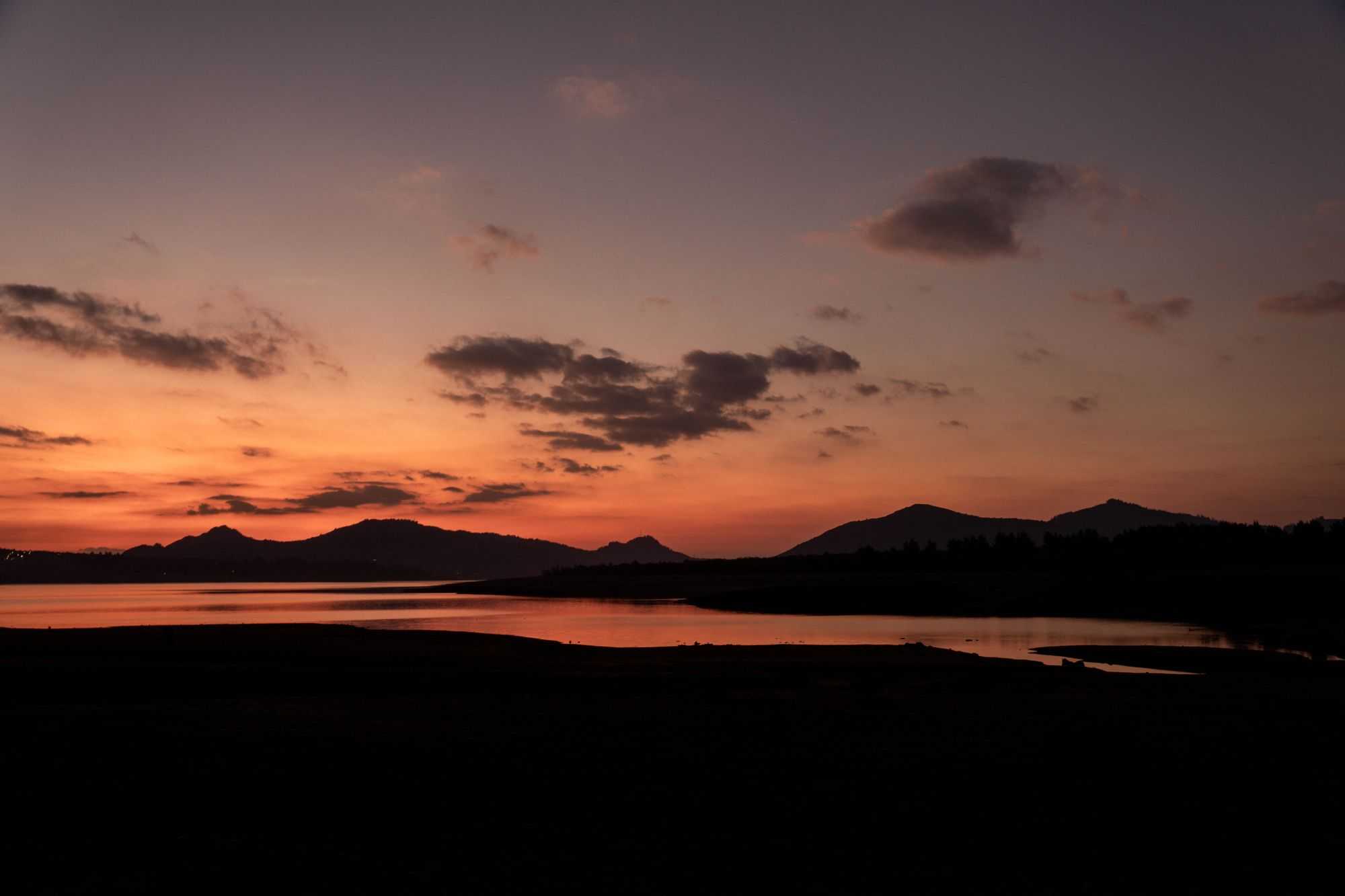
Back on the coast, back in the rainy weather. But at least we like the region a little better. A rural coast with small, simple but well-kept villages, where the field work is often still done with the help of oxen and horses. Here we treat ourselves to a fresh fish from the fish market, because we have a reason to celebrate. Chile will soon celebrate its bank holidays, and houses, shops, schools, etc. are decorated with flags. The grilled salmon tastes excellent. Note to ourselves: Next time, don't buy salmon. Not a local variety, only from farms where conditions are sometimes questionable. Chile is the second largest salmon exporter in the world after Norway. But it tasted good anyway... By the way, we are impressed by how tough the Chileans are. We sit in our car in the wind and rain and drink our beer while families barbecue next to us in the nasty weather. The love of barbecues knows no bounds here!
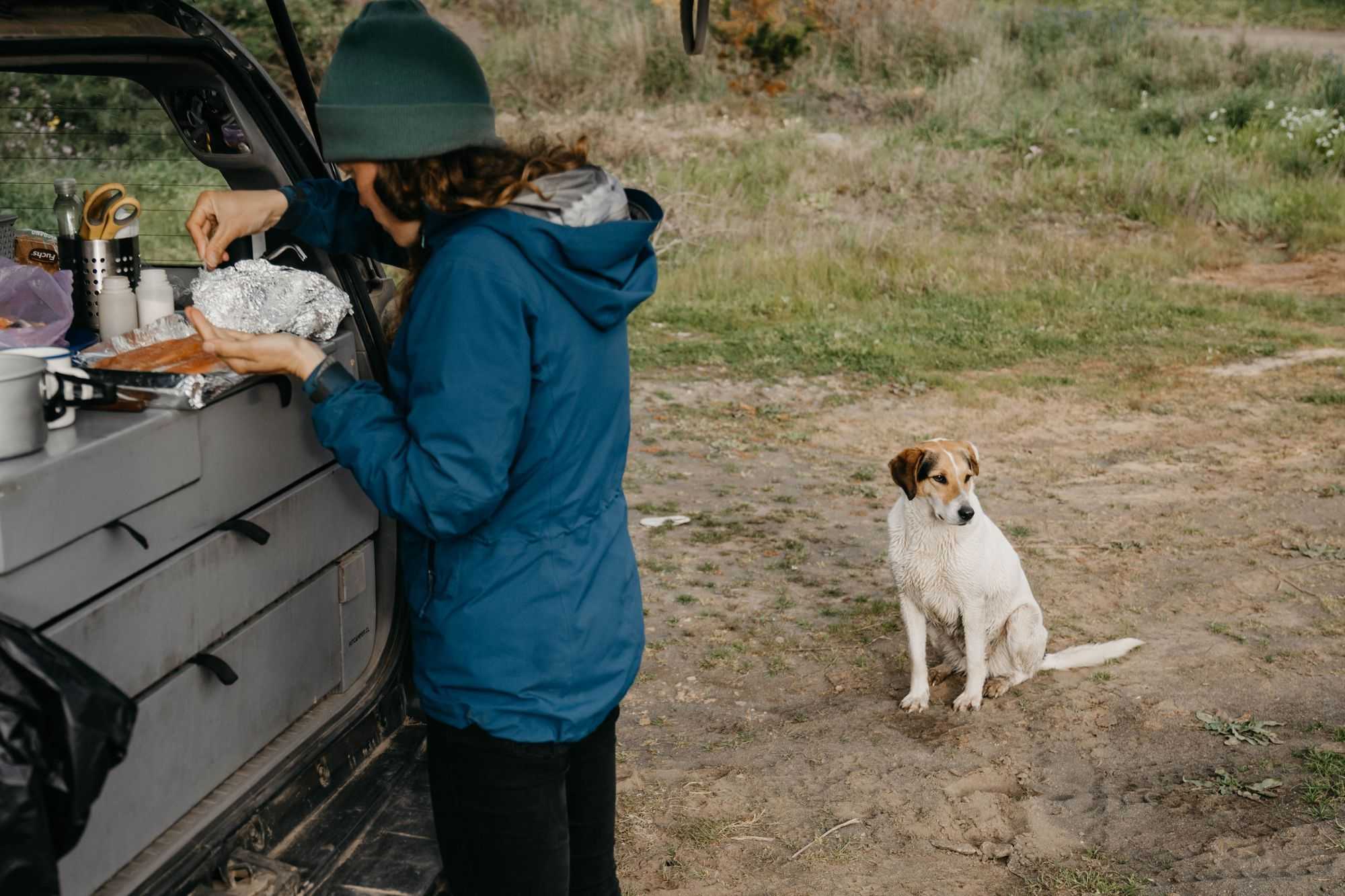
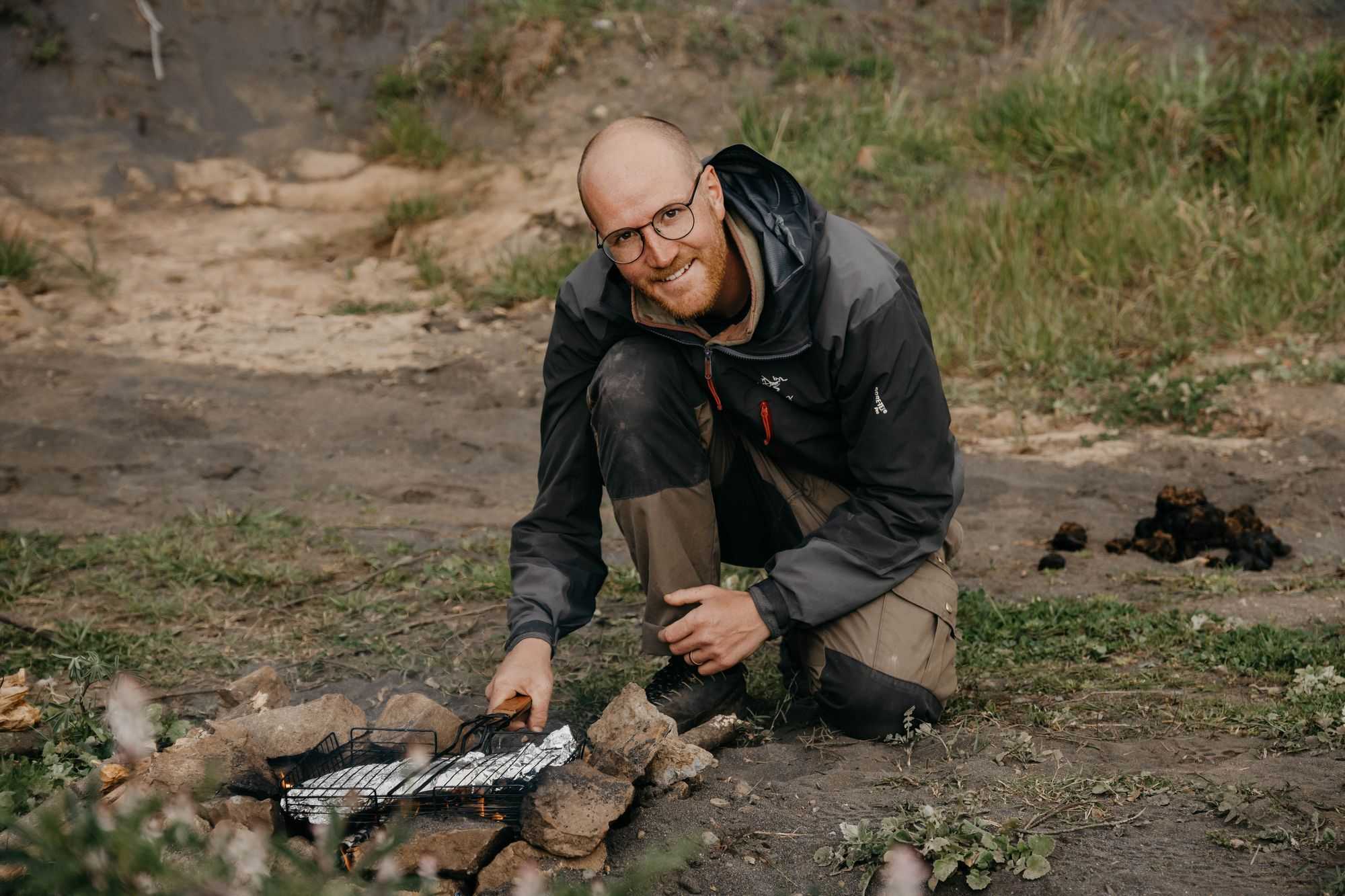
A surprising highlight awaits us the next day and it is not the rain again. Apparently there is a sea lion colony in the next village. We have learned that such statements are to be taken with a grain of salt, but what we then get to see is indeed very impressive. A rock in the sea overflowing with sea lions and many more frolicking in the water. A highlight on this rainy day.
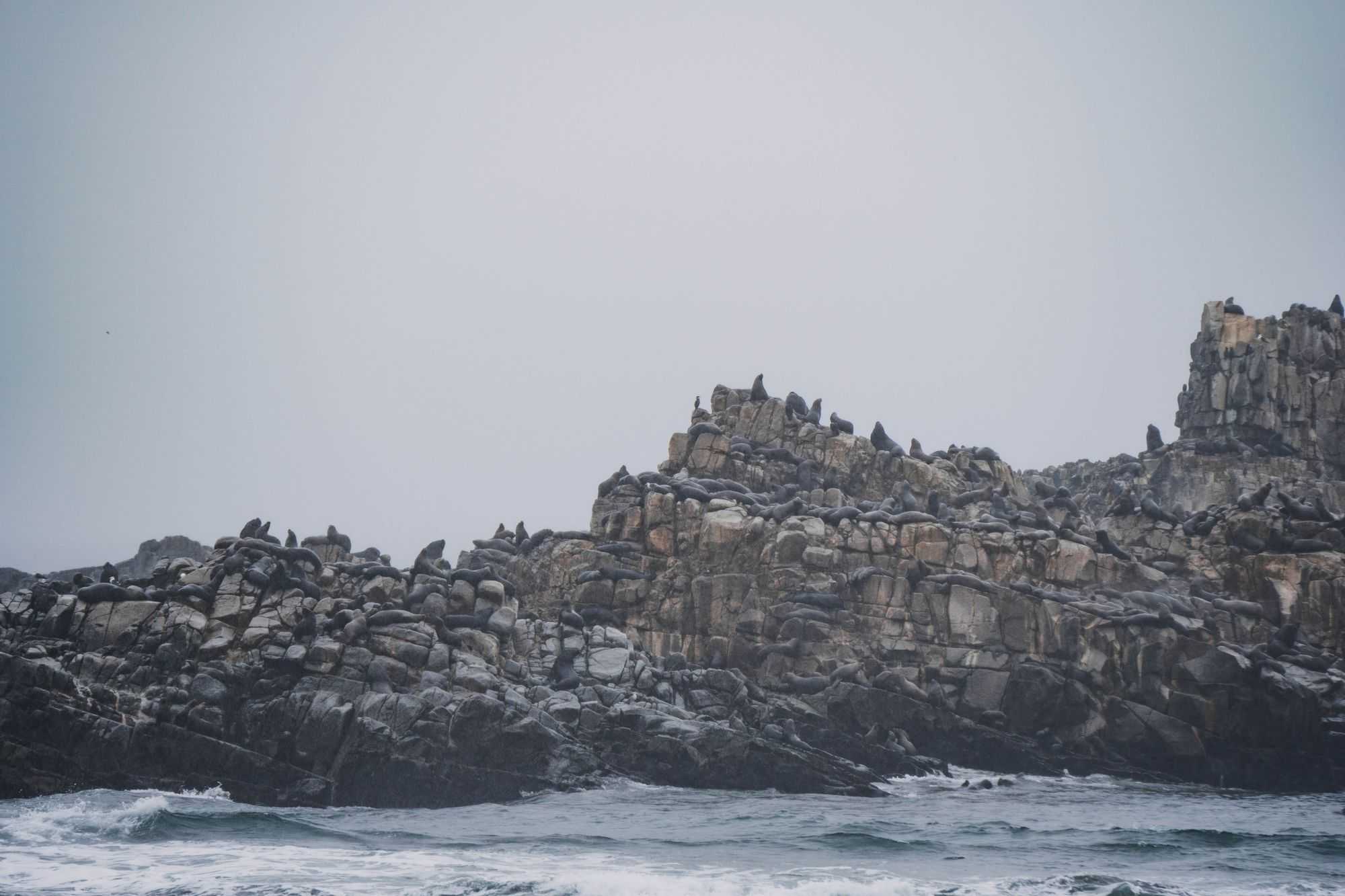
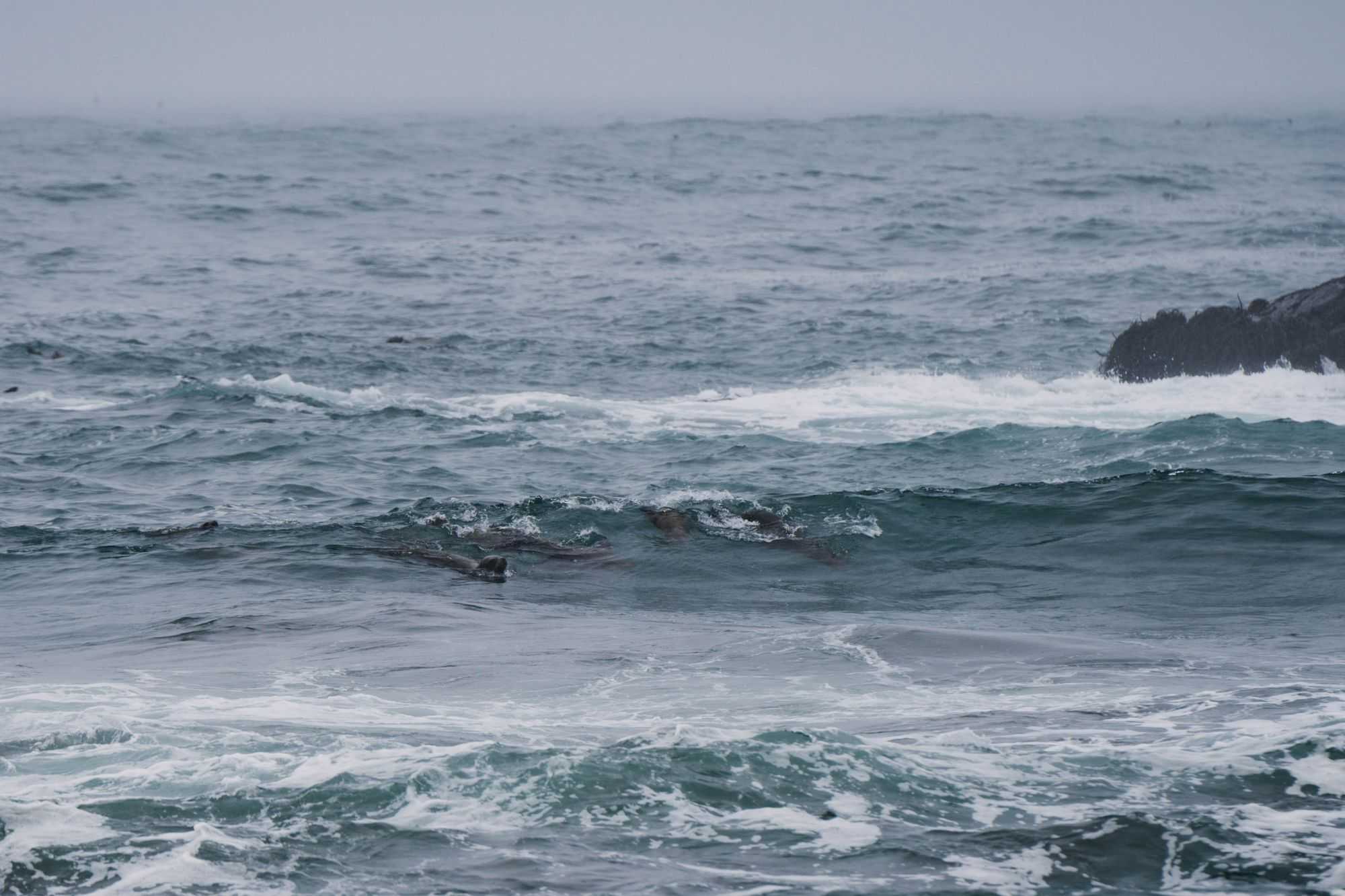
At noon we reach Concepción, a commercial city and the second largest economic centre of the country. It is not a beautiful city, but it has large shopping centres. These are our refuge on this wet day. Like many Chileans, we spend our free time in the shopping centre. As we are about to stow away our purchases, the rear door of the car strikes again. The timing could not be worse. Saturday afternoon, about 17:00, all garages already closed and an extended weekend due to the bank holidays. Since all the food is only accessible from the rear, such a breakdown is quite inconvenient for us. We decide to look for a place to sleep first and then hatch a plan. Of course, finding a place also turns out to be a challenge, but, what a miracle, when we try our luck there again, the rear hatch works perfectly again. We are happy, spend the night on a football pitch in a small coastal village, where loud party music trills through the alleys half the night. The 18th of September is celebrated as "Independence Day". Actually looking for coffee, we end up in the middle of a crowd. A parade cannot be missing on such a day and so we marvel at stiffly marching soldiers in various uniforms.
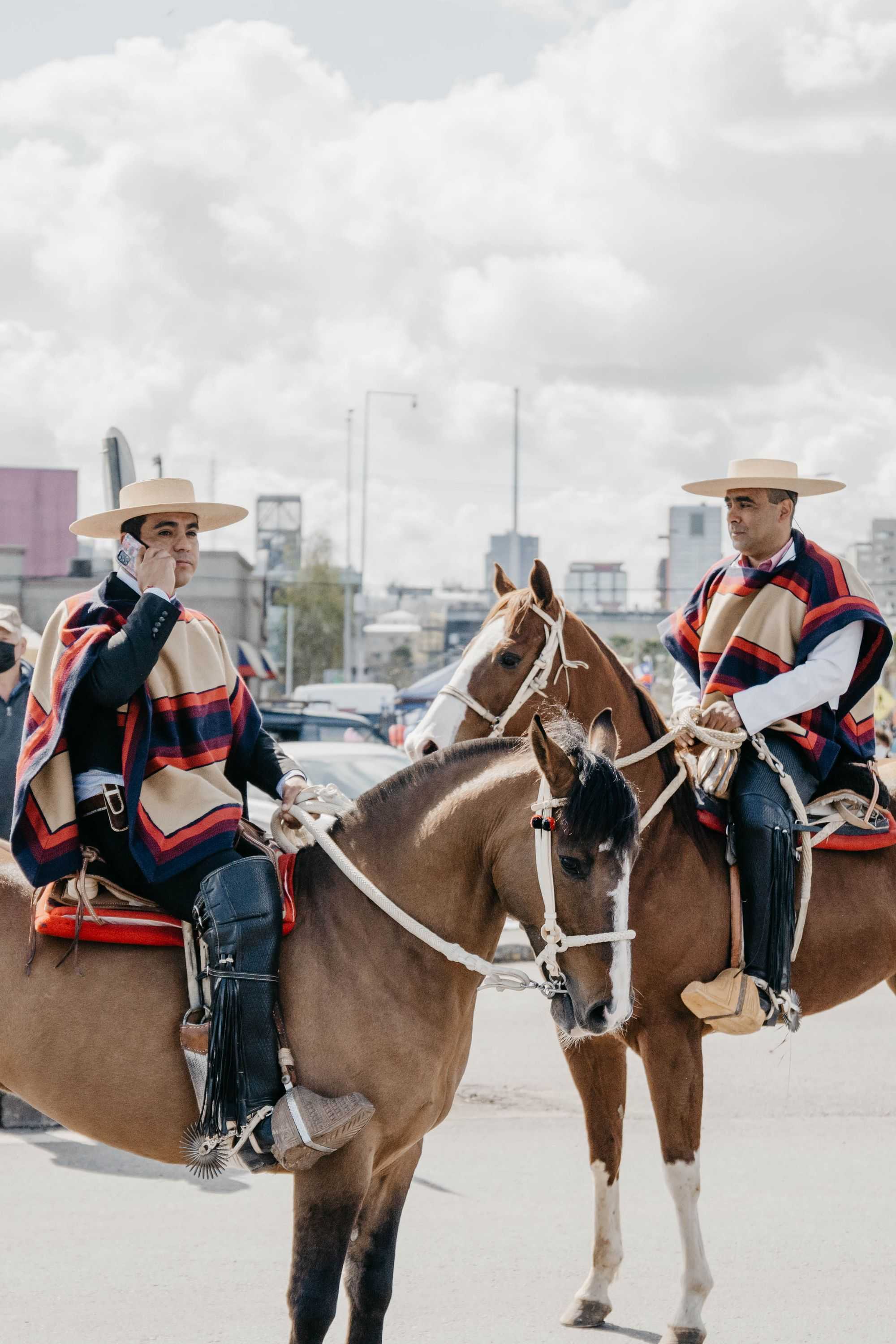
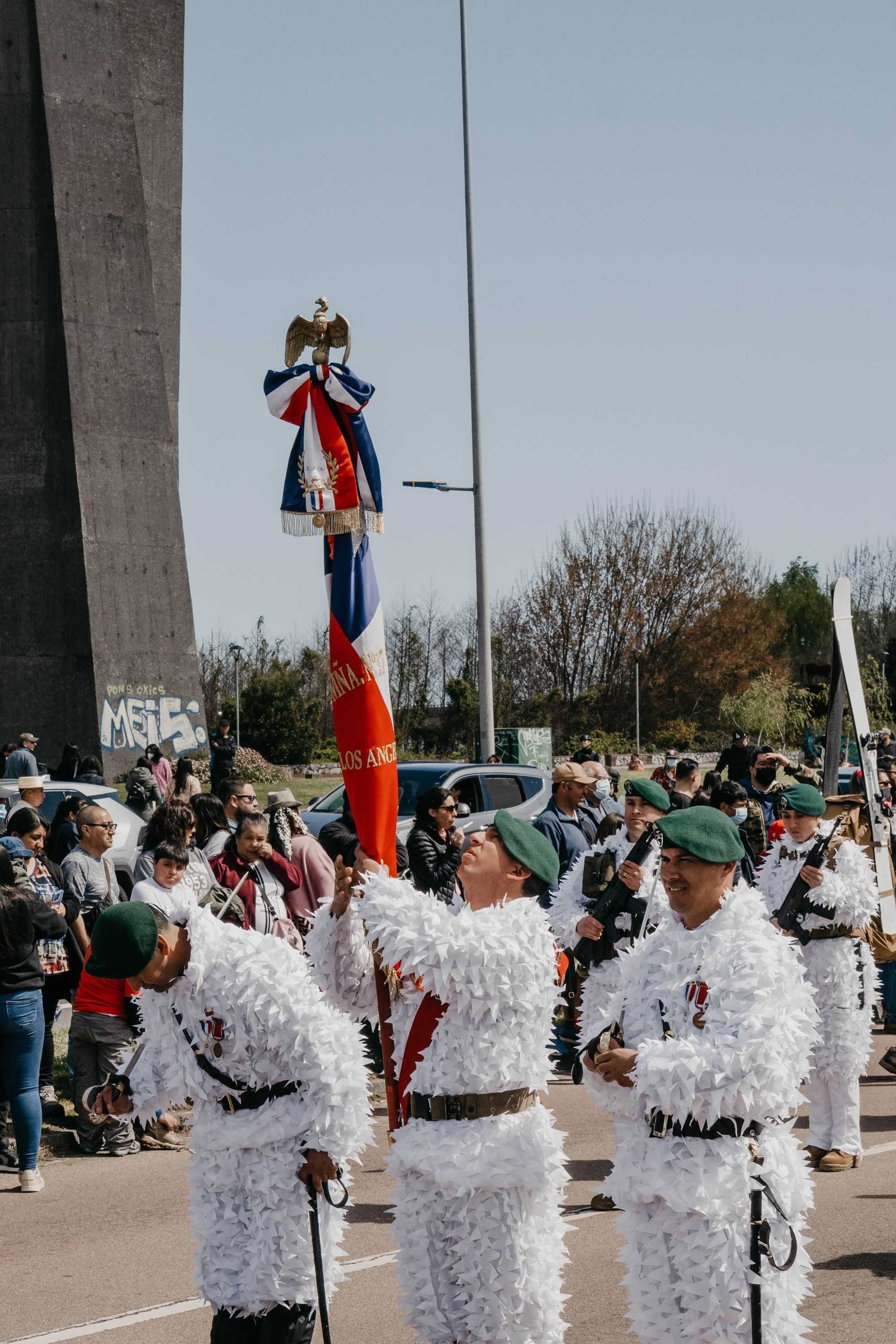
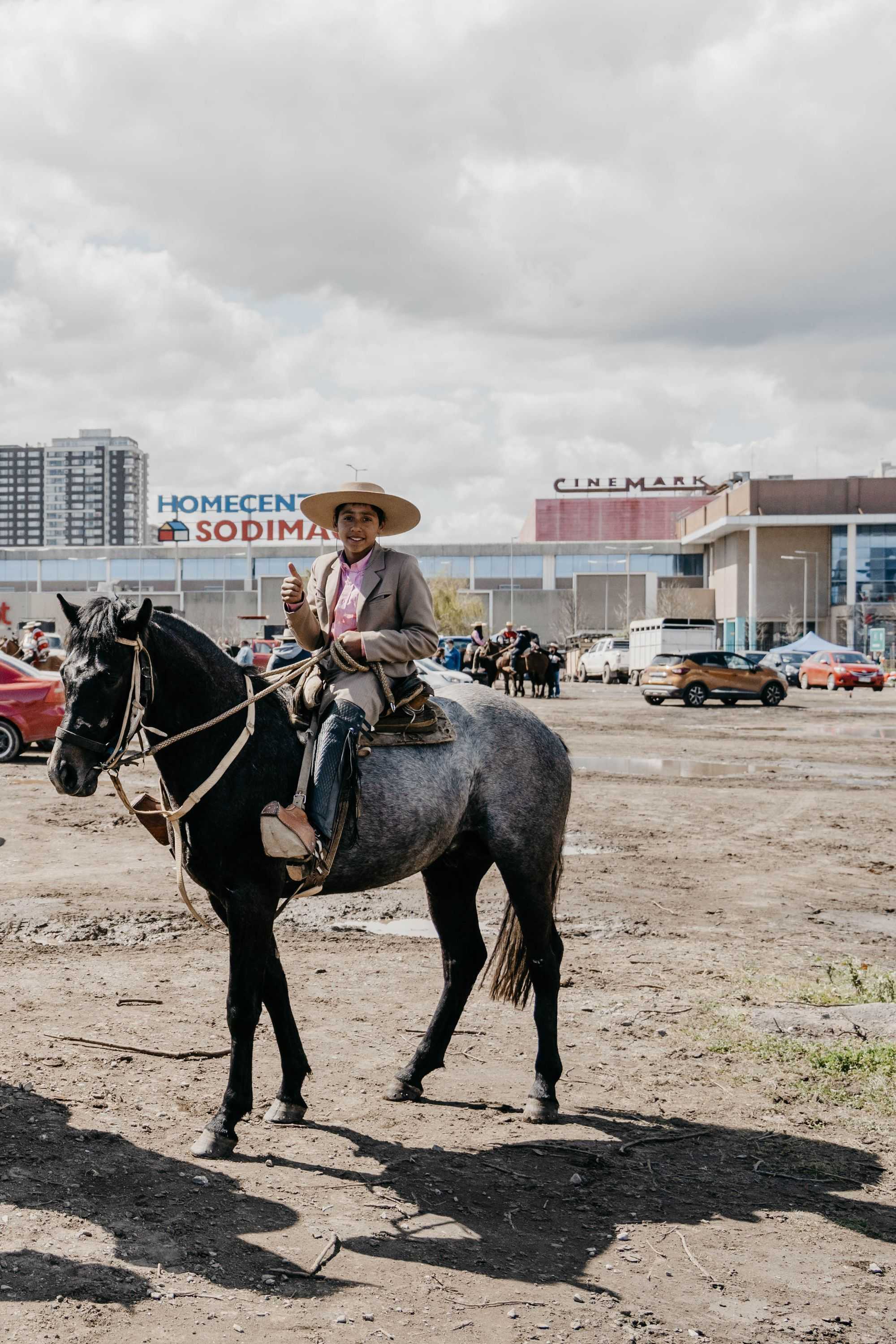
After this event, there is another section of somewhat aimless driving southwards along the coast. We discover a beautiful beach practically all to ourselves. A place to linger. That's good, because we still have some time to kill so that we don't arrive too early in Pucón. So we say goodbye to the coast for a longer time and turn south-east again. The rainy weather is catching up with us and it is supposed to stay for a few days. We are at a bit of a loss as to how to spend the remaining days and decide to arrive in Pucón a few days earlier and stay in a hostel. A wise decision, because not only the rain is getting to us, but also a nice stomach bug is plaguing Ben the next day. So we put the last few kilometres behind us. In the meantime, the landscape is lush green and water-rich rivers and lakes adorn the landscape. Nature reminds us of home, if it weren't for the snow-covered volcanoes (which we can't see yet because of the clouds, but we know they exist). So we relax for three days in the hostel in Pucón, our new home for the next 1.5 months. Then we start our workaway.
